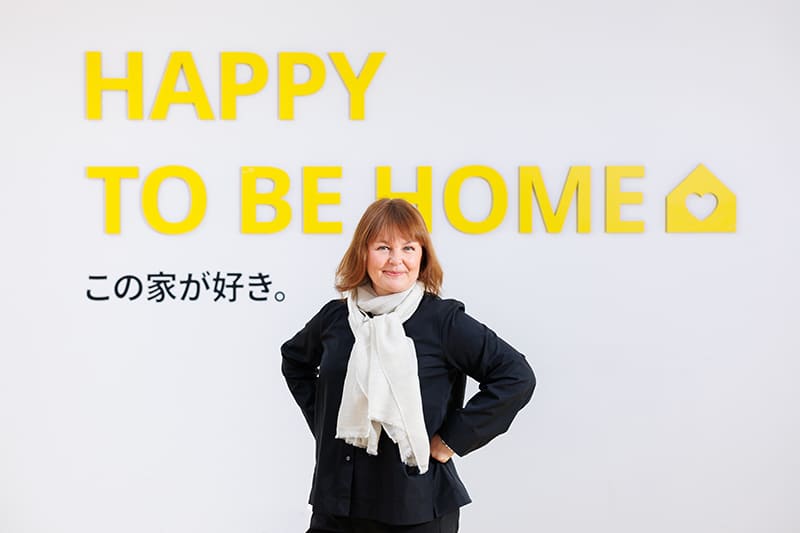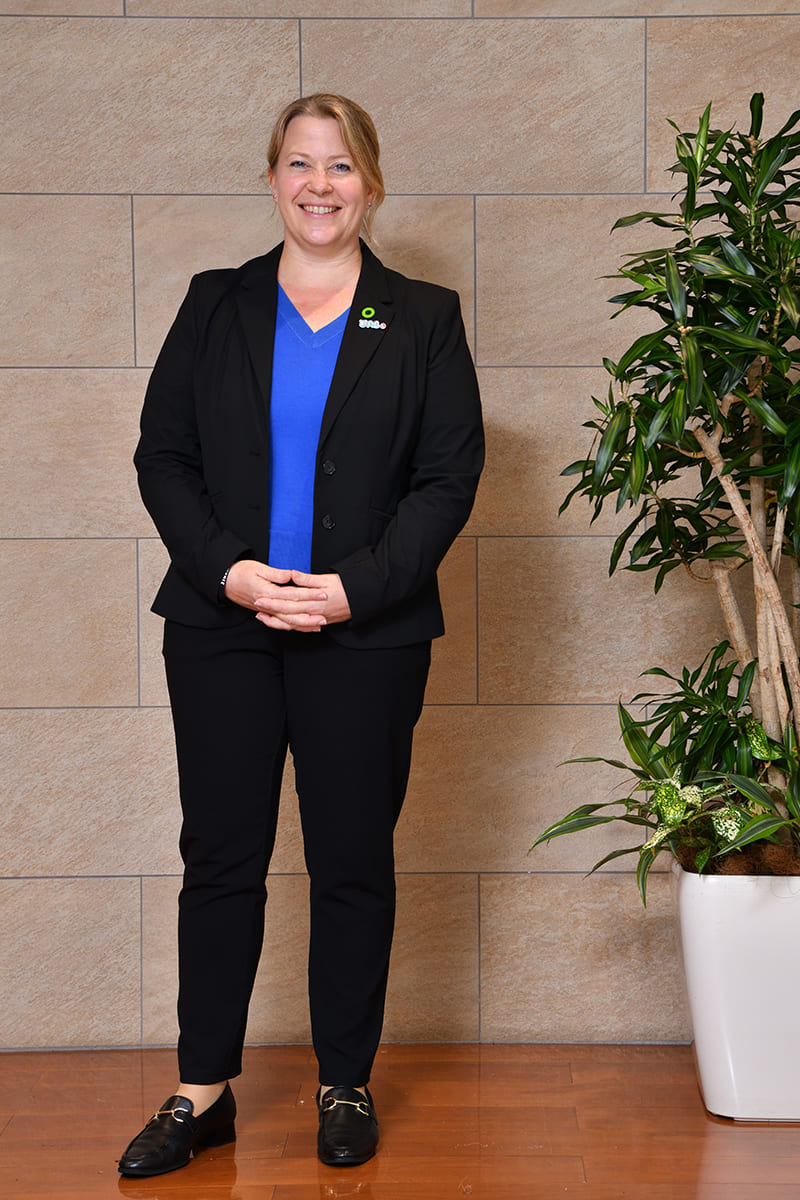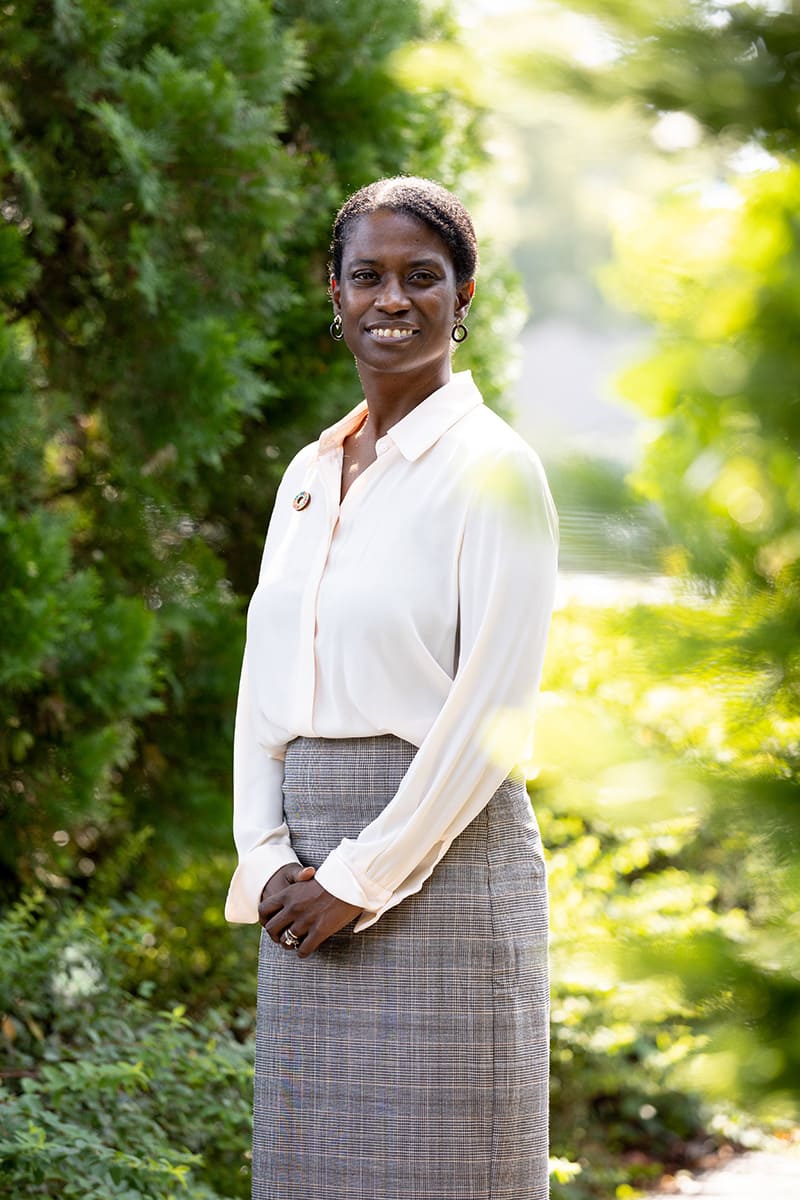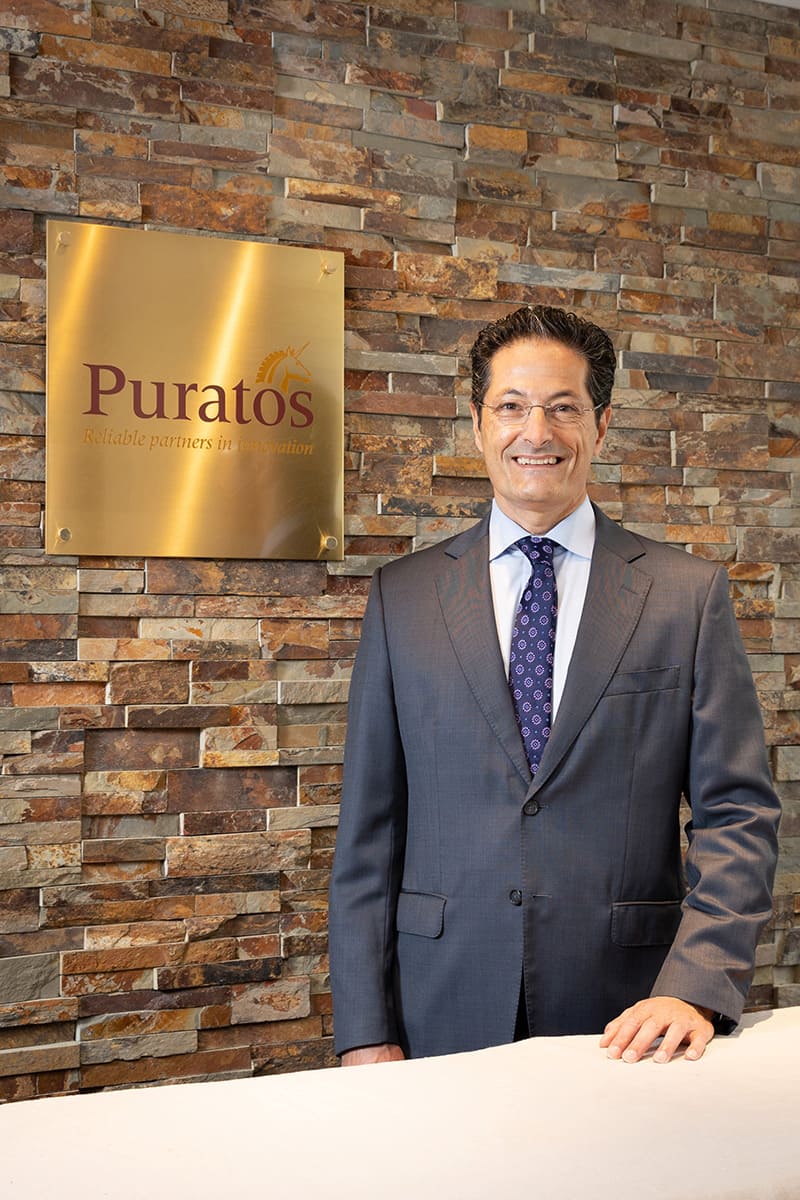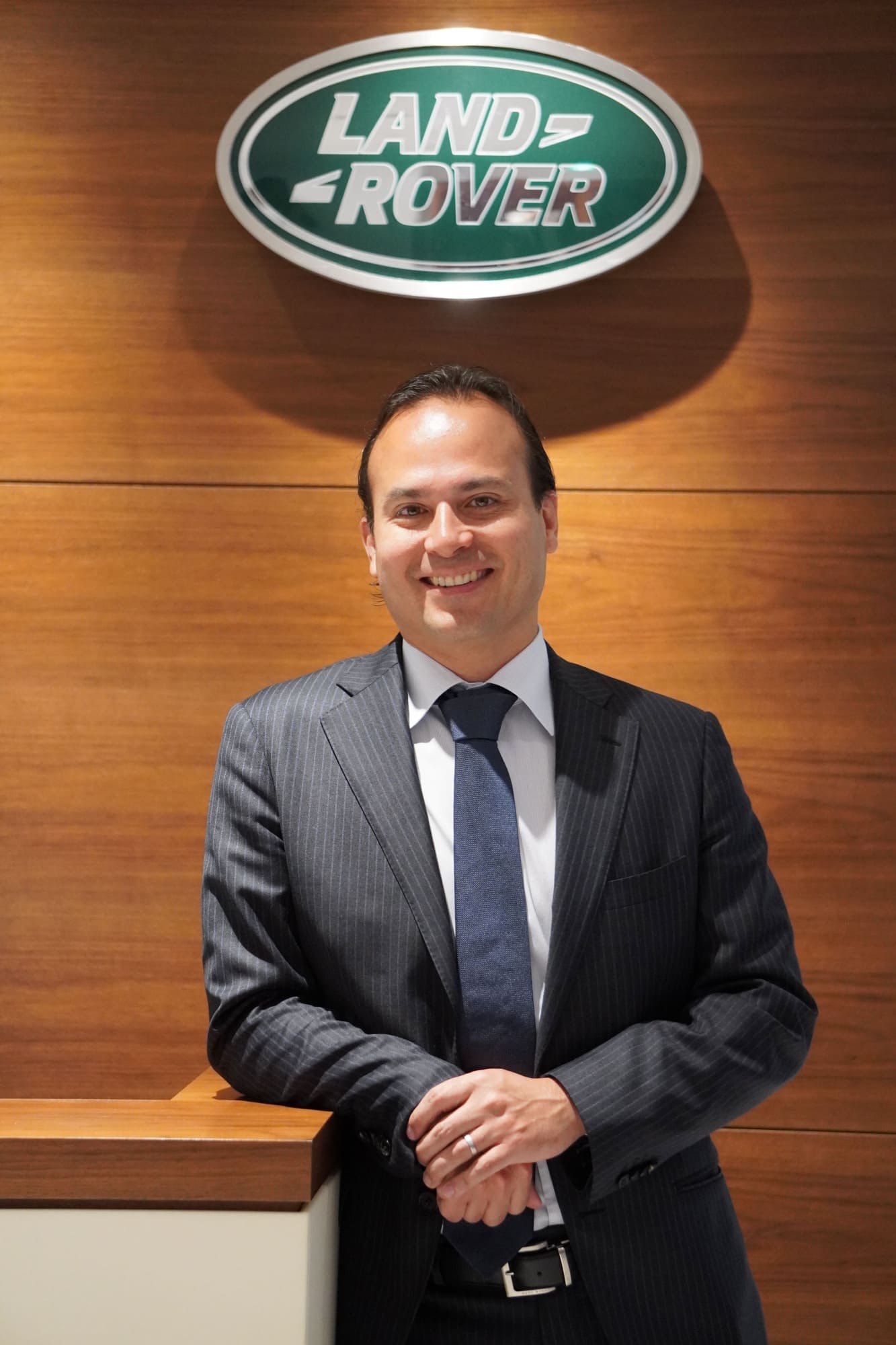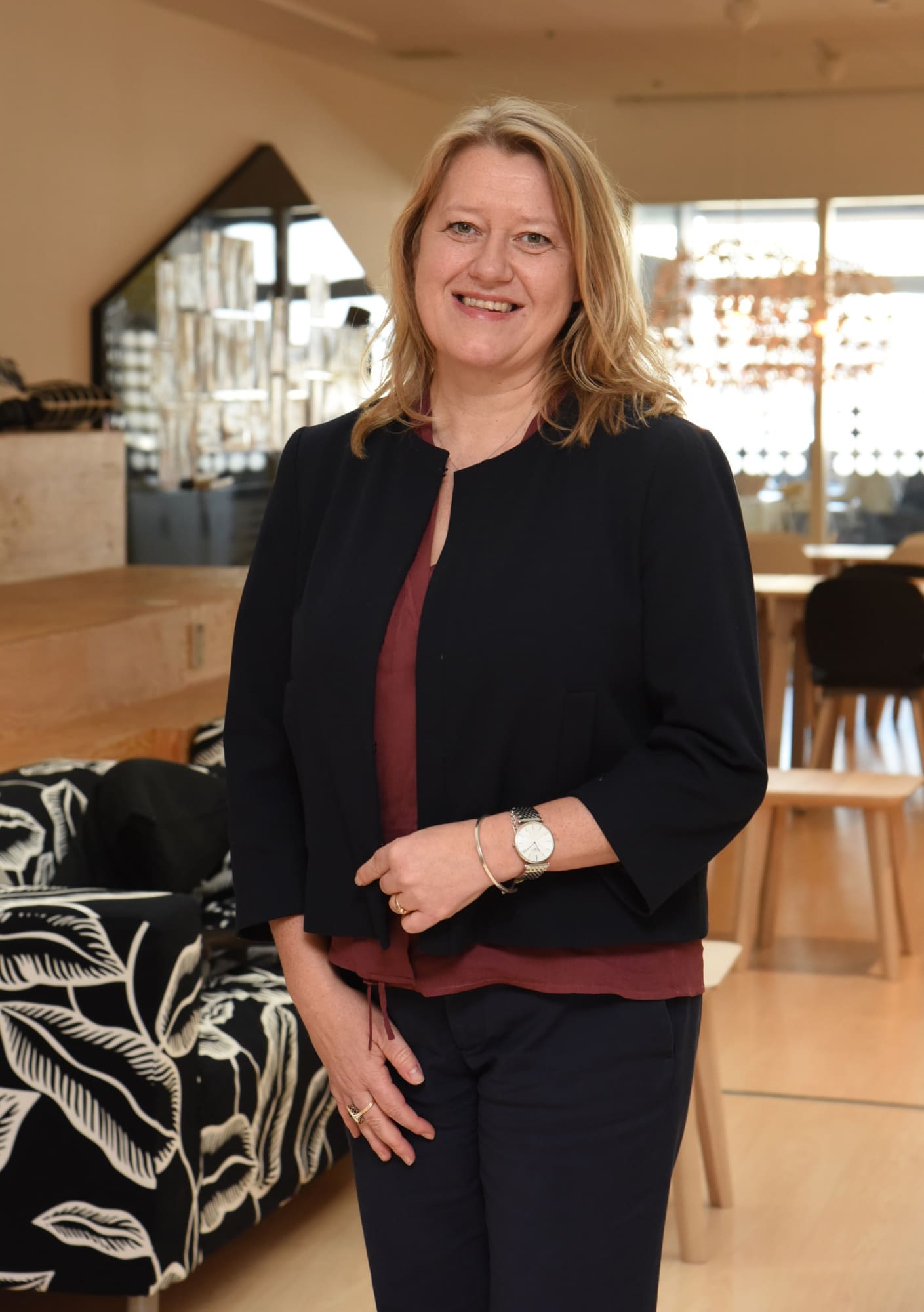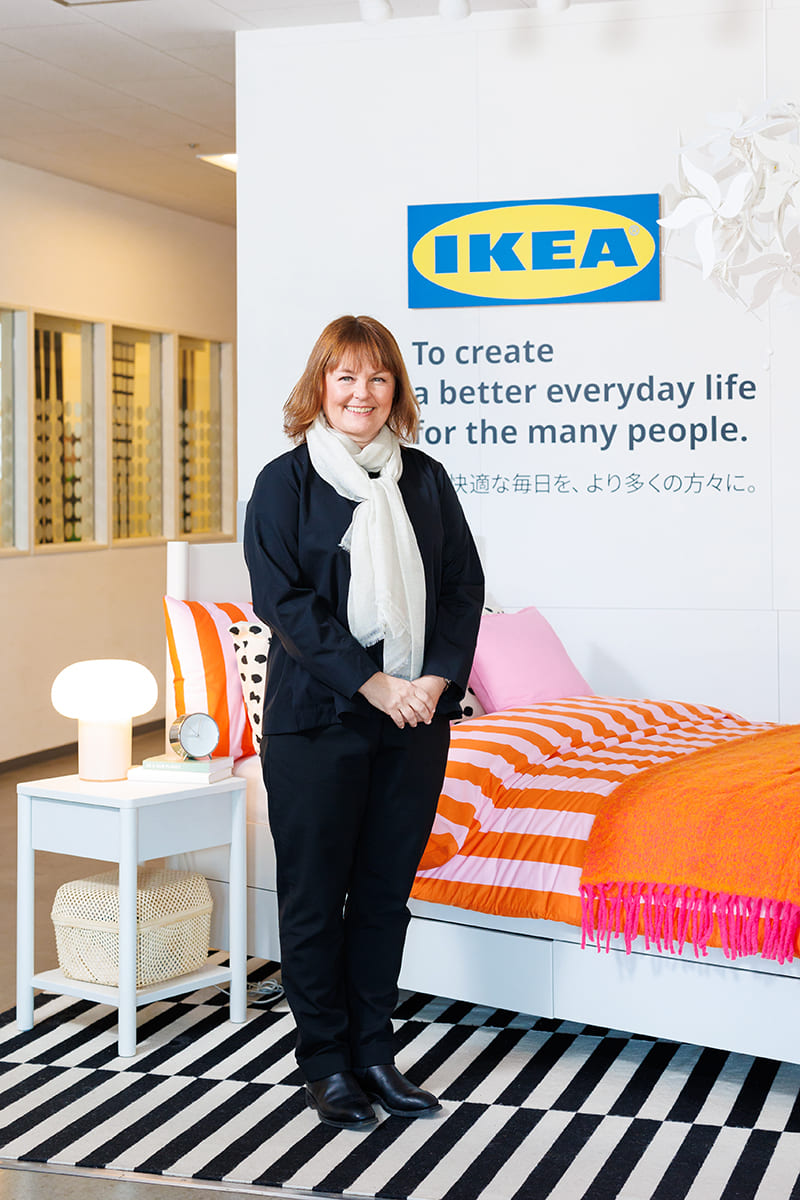
February 17, 2025
How Ikea Japan is creating happier homes
CEO Petra Fare speaks of sustainability and scrappy thoughtfulness
Contributing writer
- Name: Petra Fare
- Title: CEO and chief sustainability officer of Ikea Japan
- URL: https://www.ikea.com/jp/en/
- Hometown: Sibbhult
- Years in Japan: 3
Everyone’s image of a happy home is of a warm, safe place — a refuge from the outside world whose interior signals rest and comfort to the mind and body. In a sit-down with the CEO and chief sustainability officer of Ikea Japan, Petra Fare, we learned the many layers that comprise the word “home” to the iconic Swedish furniture brand and to Fare herself. Her commitment to building happy homes, her thoughtful cultural insights and her clear sense of leadership set a positive example of what is possible when a business and its leaders are determined to integrate sustainability into the foundation of their practices.
Scarcity leads to innovation
Fare grew up in a small town in Sweden just 45 minutes away from Ikea’s birthplace. When asked about cultural differences between living and working in Sweden versus Japan, she remarked on how Sweden and Japan share more similarities than may meet the eye. For example, Swedes have a “waste not, want not” value very similar to mottainai. As both nations are small, their natural resources are limited. This geographical reality creates a certain scrappy thoughtfulness in using every single resource in a way that maximizes utility and minimizes waste as much as possible.
As of 2019, all of Ikea’s global CEOs are also chief sustainability officers, striving to advance environmental impact initiatives and lead by example. Combining product development with an ingrained cultural mindset of mottainai, Fare believes in doing “things a little bit smarter, a little bit better, making do with what you have.”
We can see the fruition of this commitment to waste reduction in several tangible ways. On the e-commerce side, Ikea Japan has committed to zero-emission home deliveries. Currently, an impressive 40% of home deliveries are zero-emission, with the latest reports released the morning following the interview (Jan. 30) stating the aim of this figure to reach more than 90% by 2028. On the product-development side, waste is recovered and used to create new products, and their teams constantly ask themselves how they can reuse and upcycle materials in new ways. Retail stores also have buyback programs for used furniture that is then resold at lower rates. Ikea’s iconic meatballs now have a 100% plant-based alternative, and within a few years 50% of its food will be plant-based, which overall is healthier and more sustainable.
The mottainai mindset is a triumphant example of shared cultural values leading to positive business practices with wide-scale impact. However, Fare did point out that one of the biggest differences between the Swedish and Japanese markets that she has observed is lower consumer awareness of sustainability in Japan. Rather than viewing this as an obstacle, she sees it as an opportunity. “I truly believe Japan can be one of the leading countries in the world in sustainability,” she said. She remarked how the Swedish government and media very publicly push forward calls to action, and sustainability is generally a much more prominent topic. She believes similar support in Japan would catapult the nation into the forefront of climate responsibility.
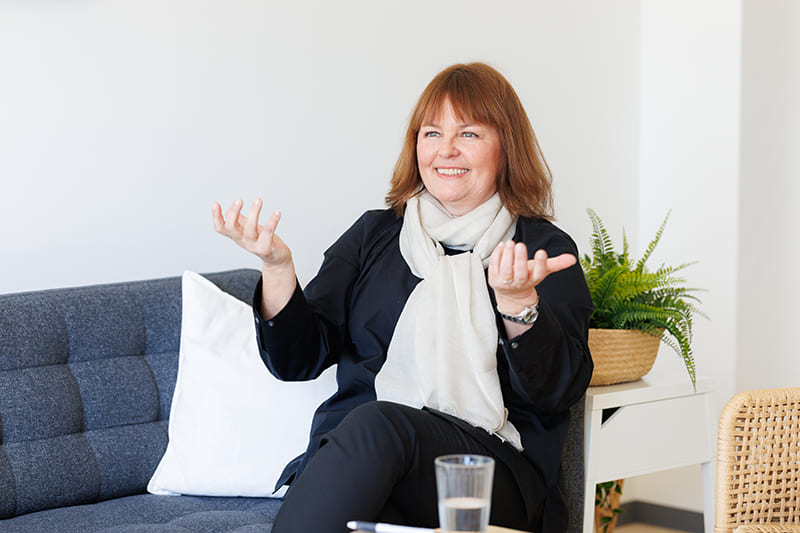
Accessible sustainability
Fare outlined three problems that Ikea’s sustainability initiatives aim to address: “climate, nature loss and circularity,” fairness and equality, and supporting healthy and sustainable lives. Addressing these begins, of course, with product development. Ikea furniture is democratically designed to be “beautiful, functional, of quality, sustainable and at a low price.” Fare made it clear that people don’t need to spend a mint in order to bring environmentally conscious items into their homes: “To enable people to lead healthy and sustainable lives, sustainability and sustainable products need to be affordable.” Since November 2023, they have lowered the prices of 1,120 items.
“We have a clear vision, we have clear values in how we do business,” she said. “Caring for people and planet is one of our key values. Our founder said from the beginning that Ikea is going to be for the many people, and to be for the many people we need to be affordable.” Sustainable products are intrinsically tied to being inexpensive and accessible, as they need to be available on a wide scale for there to be any effective impact. Pricing furniture beyond the means of the average consumer defeats the purpose of producing it sustainably.
Fare is keenly aware of this, and showed great passion in Ikea’s process of designing furniture that is not only beautiful and functional, but also cost-effective and creates as little waste as possible. She mentioned details such as how every single truck is packed as full as possible to make the most of each delivery, how retail stores provide free parts to reduce consumer burden and how Ikea saves paint by only painting the visible sides. “It’s embedded in our culture, in our company, in everything we do. Every action speaks, every action matters, from the biggest corporation to every individual.” Ingka Group, the largest Ikea retailer, has also put this commitment into action in a massive way by committing to invest €7.5 billion ($7.8 billion) in renewable energy by 2030, with €4 billion already invested.
‘Happy homes, equal homes’
Fare’s commitment to building happy homes goes beyond the physical to the more symbolic with Life at Home 2050, an initiative by Ikea Japan aimed at creating equality in the home by 2050. She spoke of “happy homes and equal homes” and has collaborated with government and academic institutions to host workshops to discuss how both businesses and individuals can work toward gender equality in the home. With the declining birth rate in Japan being a pressing social issue, Ikea Japan’s interpretation of supporting women at home is an insightful and refreshing take on creating happier homes and a happier society.
Fare’s examples of viewing obstacles as opportunities, understanding “home” as a layered concept, strongly committing to sustainability in ways big and small, and keeping products affordable demonstrate an outstanding example of a business leader not only taking responsibility for waste reduction and eco-friendliness, but doing so with a passion and empathy that consumers are starved for. “The planet is the one home we all share,” she said with a smile.
